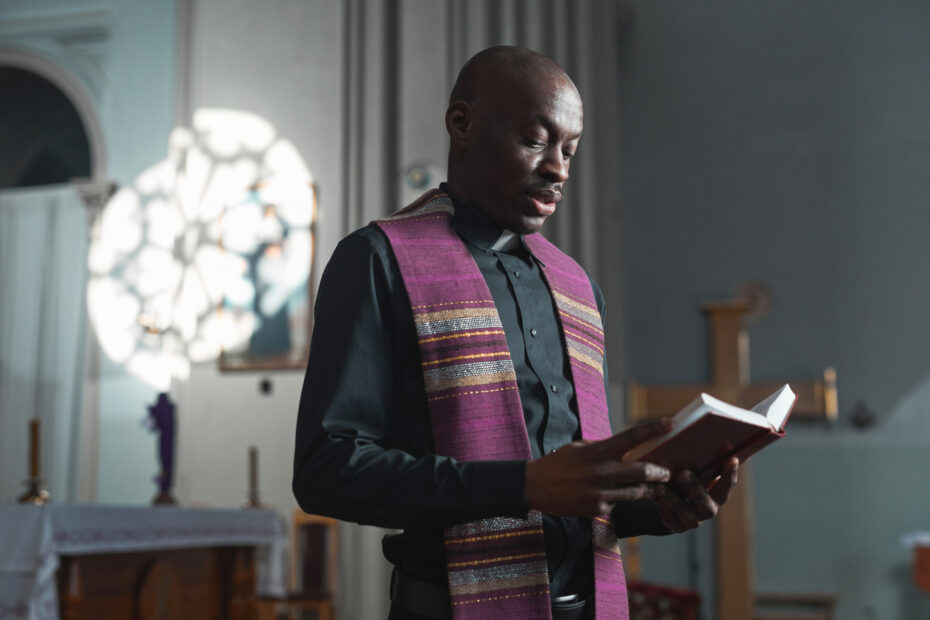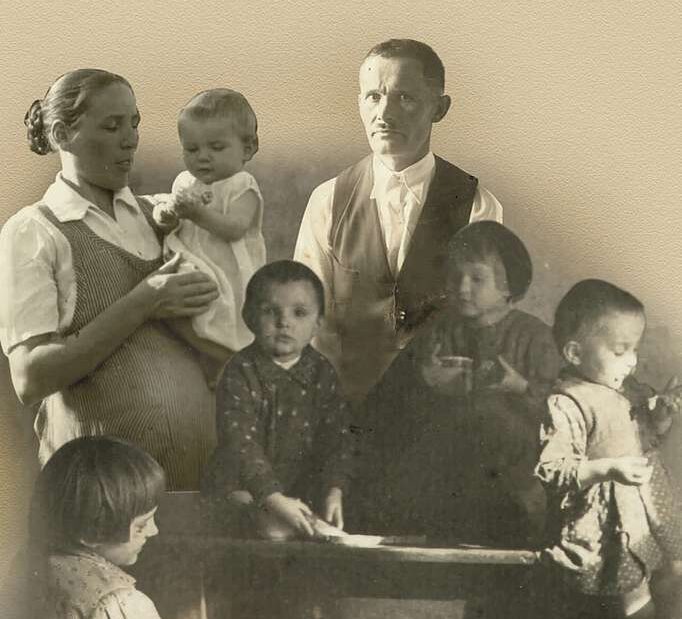February is black history month thanks to the efforts of Carter G. Woodson, who formed the first organization to promote the scientific study of black life and history in 1915. As we seek to understand and grow, it’s helpful to reflect on some of the related history of the Catholic Church and to look forward as we strengthen our journey together.
“Have among yourselves the same attitude that is also yours in Christ Jesus, who, though He was in the form of God, did not regard equality with God something to be grasped. Rather He emptied Himself, taking the form of a slave, coming in human likeness.”
Phil. 2:5-7
The global Catholic church is thriving in Nigeria and Kenya. According to researchers at the Center for Applied Research in the Apostolate (CARA), 94% of self-identified Catholics attend Mass weekly or more often in Nigeria, and 73% in Kenya.
Compare these numbers to the United States. In the same study, the data indicate 17% of self-identified Catholics attend Mass weekly or more often. At the same time, the US national synthesis for the diocesan phase of the synod notes continued concerns about racism: “Catholic people of color spoke of routine encounters with racism, both inside and outside the Church….”
That this topic is included in our dialog already indicates the positive future for our US Church as we continue to listen to each other.
But first, let’s look back
One of my heroes is Msgr. Owen Campion, long-time chaplain, and associate publisher at Our Sunday Visitor. I had the privilege of getting to know him while at OSV. Msgr. Campion is a student of history, which he relates in clever ways, delivering unvarnished truth. He bravely writes about the Catholic church and civil rights. “The civil rights movement was a series of events and developments. They profoundly affected and radically changed life in the United States, and Catholics and the Church played important roles.” Campion goes on to say that there was active discussion from the Catholic church, both pro and con, regarding slavery, with Louisiana and Maryland being the most influential because of their Catholic populations: “with regard to racial justice and equality, however, no Catholic either in Louisiana or Maryland made history opposing slavery.”
In an interview about his book All Oppression Shall Cease, Fr. Chris Kellerman, SJ says his research uncovered some surprising history, including disobedient Bishops who were supporting slavery in opposition to Church teaching at the time. Fr. Chris explains that in his research, he learned the Catholic church supported chattel slavery for her first 1200 to 1300 years. He found inspiration in his research. “Through their witness and through reading the writings of abolitionist Christians and of Black Catholics, I was able to see this beauty of—you know that phrase, the “uncommon faithfulness” of Black Catholics. That there “was this way forward that people like Lorenzo Mendoza and others had from early on. That helped me recover my Catholicism, that there were abolitionist Catholics. There were Black Catholics who could see this, and that’s the teaching of the Church today. That’s beautiful.”
Prayerful Response
There are many great examples of church leaders who saw that this was counter to Catholic church teaching through the centuries. Msgr. Campion provides some modern examples: “Katharine Drexel, a wealthy Philadelphia heiress, took an interest in African-Americans and Native Americans. She eventually founded the Sisters of the Blessed Sacrament to educate black and Indian youths. At the same time, the Josephite Fathers and the priests of the Society of the Divine Word turned their eyes toward blacks.” Southern Bishops, in particular, found themselves in challenging environments and rose to be champions of change, including “Bishop Vincent S. Waters of Raleigh, a Virginia native, Tennessee-born Bishop Joseph A. Durick of Nashville, Bishop Joseph Brunini of Natchez-Jackson, himself from Mississippi, and Bishop Carroll T. Dozier of Memphis, also from Virginia.”
Pope Leo XIII condemned slavery as incompatible with Christianity and denounced human trafficking, which has continued through Popes John Paul II, Benedict XIV, and Francis.
US Bishops have continued to lead. The USCCB ad-hoc committee against racism was formed to teach about and to witness the dignity of the “ human person as an antidote to the grave sin of racism.” Open Wide Our Hearts, the pastoral letter against racism, was approved in 2018 and continues to be a key guide for our Church. In the document, we are reminded that this letter is for all of us, and encourages true conversion of heart.
What Now?
The global synodal process is a positive step for the US Catholic Church. The process invites ongoing communion. Including opportunities to listen to the great advancements and the big challenges, people experience in our Church. This is one arena where we can continue to come together cross-culturally.
In our parishes, we can proactively bring groups together in prayer. Prayer and encounter with Christ are something we all have in common. It can help us build trust across cultural differences.
Black history is intertwined with Catholic Church history. This month use the time for ongoing conversion in the love of all people through our trust in Christ Jesus. Msgr. Campion concludes: “As the U.S. bishops wrote in a statement marking the 50th anniversary of the 1963 March on Washington: “The dream of Dr. King and all who marched and worked with him has not yet fully become a reality for many in our country. While we cannot deny the change that has taken place, there remains much to be accomplished.”
Terry Poplava is a multi-disciplined executive with extensive sales, product marketing, strategy and leadership experience in supporting faith organizations. Terry’s professional experience includes organizational leadership, corporate development and growth, consulting with and training church leaders, and leading strategic and priority planning for churches and dioceses. He currently serves on the advisory board for the National Shrine of Our Lady of La Leche in St. Augustine FL, as cantor at St. Andrew parish in Myrtle Beach, SC. and recently as Chairman of the Finance Council at St. Mary the Virgin Mother parish in Hartsville, SC.




